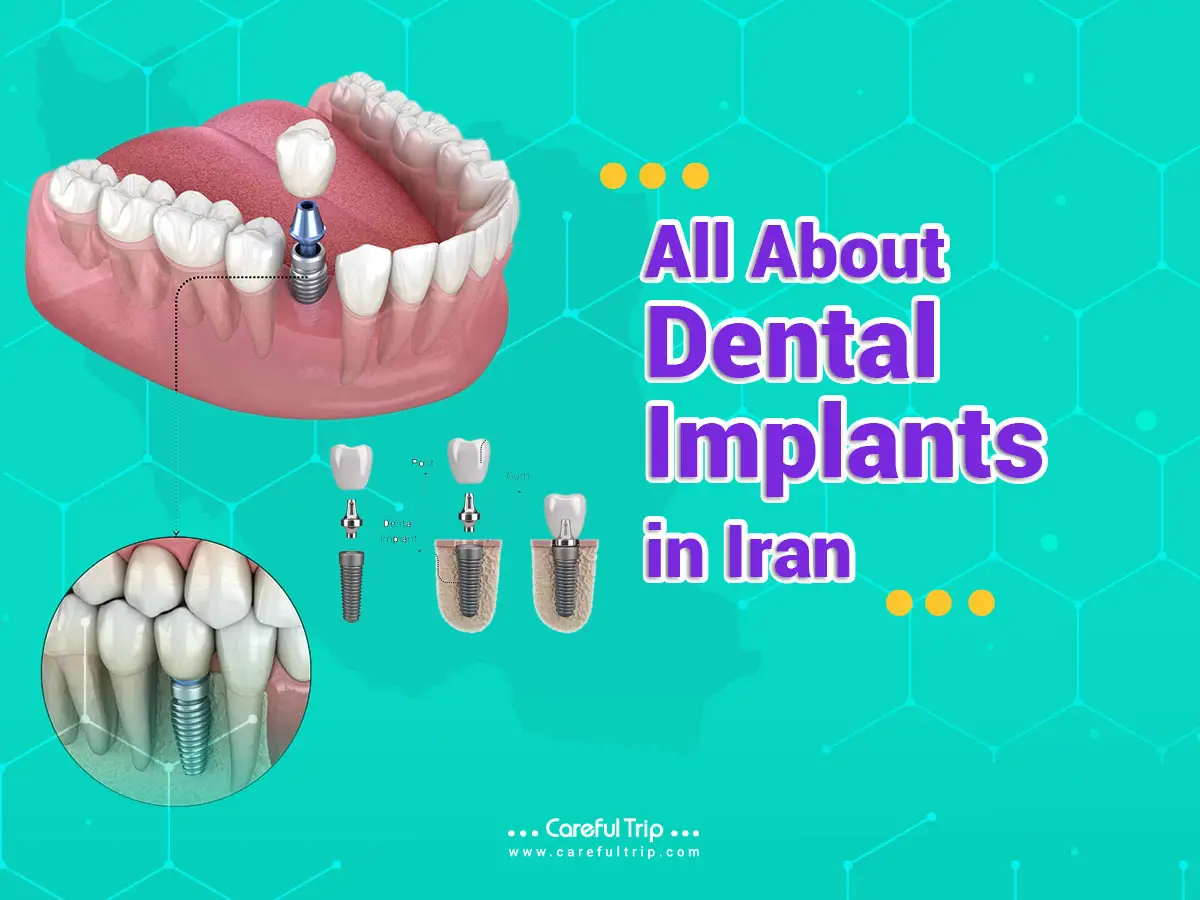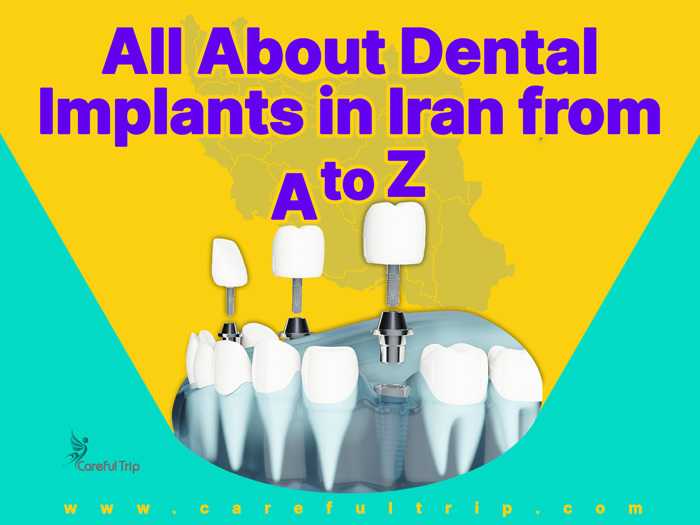
Losing teeth due to decay, injury, or aging can significantly impact appearance and function. It can make simple tasks like chewing and speaking more complex, leading to shifts in the alignment of the remaining teeth, which can cause discomfort or even pain. Fortunately, dental implants have revolutionized tooth replacement. These modern solutions restore functionality and provide a long-lasting, natural-looking replacement. In Tehran, Iran, dental professionals offer high-quality dental implant treatments that are both effective and cost-efficient.
Dental implants have evolved significantly over the years, with advancements in technology ensuring that implants mimic the look and function of natural teeth. An implant replaces the root of a missing tooth, and a crown is placed on top, seamlessly blending with your existing teeth. However, choosing the right dental professional is crucial, as not all surgeons are equally skilled or trained in placing implants. It’s essential to seek a reputable specialist to achieve the best outcome for this long-term dental solution.
What Are Dental Implants?
A dental implant is a medical device that replaces the root of a missing tooth. It is typically made of titanium, a material that integrates well with the jawbone. Implants are designed to support crowns, bridges, or dentures, restoring teeth’ appearance and function. In Iran, dental implants have become popular for those seeking permanent tooth replacements, offering significant advantages over traditional dentures or bridges.
Dental implants are not only beneficial for cosmetic reasons but also for oral health. They prevent bone loss in the jaw, often when missing a tooth. When the jawbone no longer supports a tooth, it can deteriorate, leading to further dental issues. Dental implants help stimulate the bone and prevent this deterioration.
“The whole process can take many months from start to finish. Much of that time is for healing and waiting for the growth of new bone in your jaw,” – Mayo Clinic.
Why Choose Dental Implants in Iran?
Iran has become a popular destination for dental tourism, attracting patients worldwide, especially for procedures like dental implants. Here are a few reasons why Iran is a top choice for dental implant treatments:
1. High-Quality Care at Affordable Prices
Iran offers world-class dental services at a fraction of the cost compared to many Western countries. Thanks to the country’s advanced medical facilities and highly skilled dentists, you can expect excellent results at a significantly lower price.
2. Experienced Professionals
Iranian dental professionals undergo extensive training, and many have international experience in implant dentistry. They use the latest techniques and technology to ensure the best possible results.
For more information, read:
3. State-of-the-Art Clinics
Dental clinics in Iran are equipped with the latest technology, allowing for precision in diagnosis, treatment planning, and execution. Advanced equipment ensures that the implants fit perfectly and last longer.
4. Comprehensive Aftercare
Iranian dental clinics offer robust aftercare services, ensuring that patients have the necessary support during their recovery. This includes post-surgery check-ups and advice to ensure the implant’s long-term success.
Types of Dental Implants in Iran
Two main types of dental implants are used in Iran: endosteal and subperiosteal implants. Both types serve the same essential purpose but are used depending on the patient’s bone structure and needs.
1. Endosteal Implants
- These implants are the most common dental implant surgically inserted into the jawbone.
- Typically made of titanium, endosteal implants are shaped like small screws, which integrate with the bone over time.
- They are ideal for patients with adequate jawbone density.
2. Subperiosteal Implants
- Subperiosteal implants are placed beneath the gum line but above the jawbone. They are generally used for patients who do not have enough healthy jawbone to support endosteal implants.
- These implants are ideal for patients who cannot undergo bone augmentation procedures.
3. Bone Augmentation and Sinus Lifts
- For patients with insufficient bone density in the jaw, procedures like bone grafting (bone augmentation) and sinus lifts are available. These procedures help build up the bone structure before the implant can be placed.
- Bone augmentation uses bone supplements and growth factors to stimulate the natural growth of bone, creating a stable foundation for the implants.
- Sinus lift is a procedure used to increase the bone height in the upper jaw by lifting the sinus membrane, particularly in patients who have lost teeth in the upper molar area.
For more information, read:
Preparing for a Dental Implant Procedure
1. Comprehensive Examination
The first step in preparing for dental implants is a thorough examination by a qualified dentist. This includes X-rays, a visual exam, and a medical history review. The dentist will assess your overall oral health, jawbone density, and any potential issues that may affect the procedure.
2. Bone Grafts and Jaw Reshaping
If the dentist determines that your jawbone is too weak to support an implant, they may recommend a bone graft or jaw reshaping. These procedures help improve the structure of your jaw, ensuring that the implant will have a firm foundation.
3. Pre-Surgery Preparations
Before the procedure, you may be prescribed antibiotics to prevent infections and advised to fast for a few hours if general anesthesia is required. It’s also essential to wear comfortable clothing on the day of the surgery.

Dental Implant Aftercare
The success of dental implants depends not only on the procedure itself but also on how well you take care of your implants after the surgery. Proper aftercare is essential for ensuring that the implants heal correctly and provide long-lasting benefits.
1. Post-Surgery Instructions
Immediately after the procedure, you may experience some swelling and discomfort. Follow your dentist’s instructions for pain management and avoid disturbing the implant area with your tongue or fingers. You may be advised to stick to soft foods for a few days and avoid smoking, as it can slow down the healing process.
2. Cleaning and Maintenance
Maintaining oral hygiene is crucial. Gently brush around the implant site after the first few days using a soft toothbrush. Avoid brushing the surgical area directly until it has healed sufficiently. Rinsing with warm salt water can help keep the area clean and promote healing.
3. Regular Check-ups
Regular follow-up visits with your dentist are essential to monitor the healing process and check the stability of the implant. Any signs of infection or implant issues should be addressed promptly to ensure long-term success.
For more information, read:
What to Avoid After Implant Surgery
- Hot or Cold Foods: Avoid consuming hot or cold foods immediately after the procedure, as the implant area may be sensitive.
- Strenuous Activity: Refrain from intense physical activity for at least 48 hours post-surgery to allow proper healing.
- Smoking: Smoking can interfere with healing, so it’s best to avoid it for several weeks after your surgery.
Conclusion: Is a Dental Implant Right for You?
Dental implants in Iran offer a reliable, durable, and natural-looking solution for those suffering from missing teeth. With advances in implant technology, patients can enjoy a restored smile and improved oral health at a fraction of the cost found in many other countries. However, it’s essential to work with an experienced dental implant specialist who can provide tailored care to ensure the success of your procedure.
Sources
- American Academy of Implant Dentistry – Dental Implants Overview
- Mayo Clinic – Dental Implant Surgery Guide
- Iran Health Tourism News – Benefits of Dental Implants in Iran

